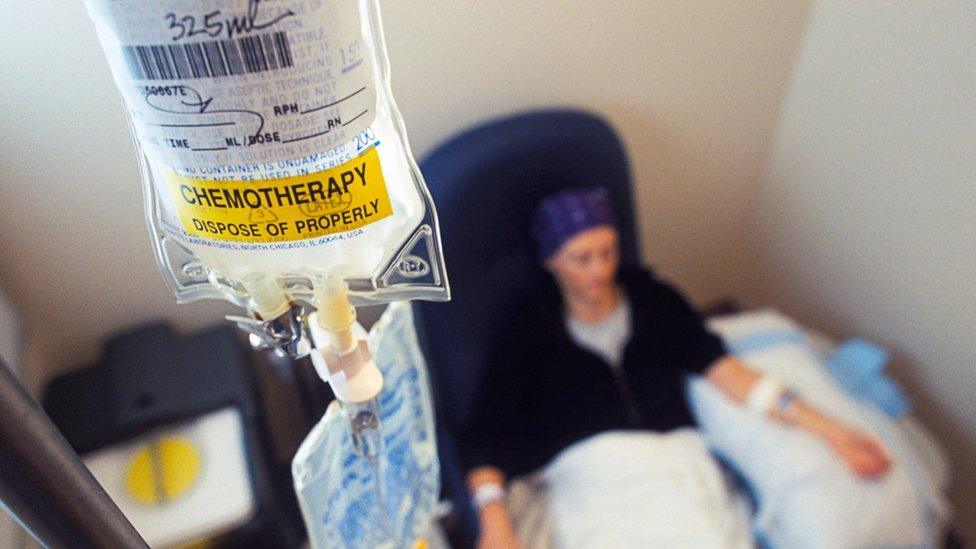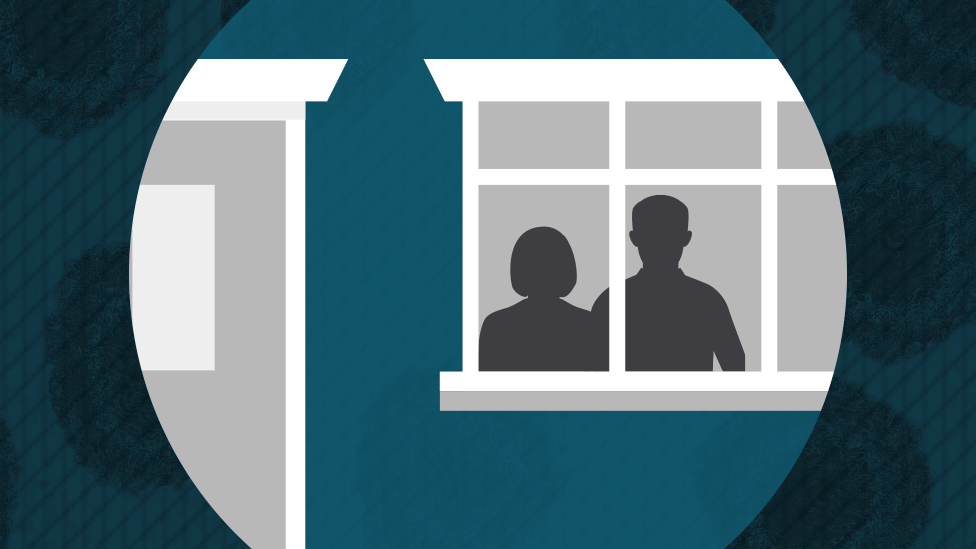Shielding not needed yet, despite rising Covid rate
- Published
- comments

Cancer patients need to take extra care
Shielding is not being reintroduced in England, despite rising levels of coronavirus across most of the nation.
Government advisers say that, unlike in March, there are other protective measures in place - such as the rule of six and the wearing of face coverings in shops - to help reduce the spread.
But people should take precautions to avoid getting Covid.
Those who were on the shielding list will receive a letter about the advice with tips on how they should do this.
Charities said the recommendations were not enough on their own, without financial and mental health support for the most vulnerable.
The advice, external is tailored according to the local Covid alert level the person lives in, using the new three-tier system:
Medium alert level:
Strictly observe social distancing
Meet others outside where possible
Limit unnecessary journeys on public transport
Work from home where possible
People can still go to work and children should still attend school.
Rule of six applies
High alert level:
Reduce the number of different people you meet outside
Avoid travel except for essential journeys
Work from home where possible
Reduce the number of shopping trips made or go at quieter times of the day
Going to work - in Covid-secure workplaces - permitted if they cannot work from home
Children should still attend school
Restrictions on not meeting other households indoors, unless part of a support bubble apply as does the rule meet in groups of no more than six outdoors
Very high alert level:
Work from home
Stay at home as much as possible
Avoid all but essential travel
Reduce shopping trips, and if possible use online delivery or ask people in your household, support bubble or volunteers to collect food and medicines
People in these areas are encouraged to still go outside for exercise, and can still go to school and to work if they cannot work from home
Additional support should be available from local authorities
Shielding advice will not automatically be triggered by an area going into tier three.
But it may be reintroduced in the future in hotspot areas in exceptional circumstances.
If that happens, people at high risk would again be advised to stay at home, not go to work or school and limit social interactions to their own household and support bubble.
The aim is to strike a balance - protecting health but not being too stringent with measures that can take a toll on people's wellbeing.

LOOK-UP TOOL: How many cases in your area?
YOUR QUESTIONS: We answer your queries
GLOBAL SPREAD: How many worldwide cases are there?
THE R NUMBER: What it means and why it matters
VACCINE: How close are we to finding one?
EPIDEMIC v PANDEMIC: What's the difference?

Deputy Chief Medical Officer for England Dr Jenny Harries said: "Whilst advisory, I would urge all those affected to follow the guidance wherever they can and to continue to access health services for their medical conditions.
"We will continue to monitor the evidence closely and fine-tune this approach to make sure everyone in this group is clear about the safest way to go about their daily lives, particularly over the coming winter months."
Shielding is paused in Wales, Northern Ireland and Scotland too, and the devolved nations are expected to take similar approaches to England.
Dr Stephen Griffin from the University of Leeds, said shielding should not be seen as a long term strategy: "The psychological, societal and sometimes physical cost of the process was, and is, not to be underestimated."
Gemma Peters, chief executive of Blood Cancer UK, said: "The Government needs to urgently revise this guidance and give financial support to people with blood cancer who cannot work from home.
"This guidance also fails to offer specific mental health support. The mental health toll of the pandemic on people who have been shielding has been great, and so it is extremely disappointing that, six months on, there is no extra mental health support for people who are vulnerable to the coronavirus."
The MS Society said vulnerable people deserved to know they will be supported through the crisis.
- Published13 July 2021
